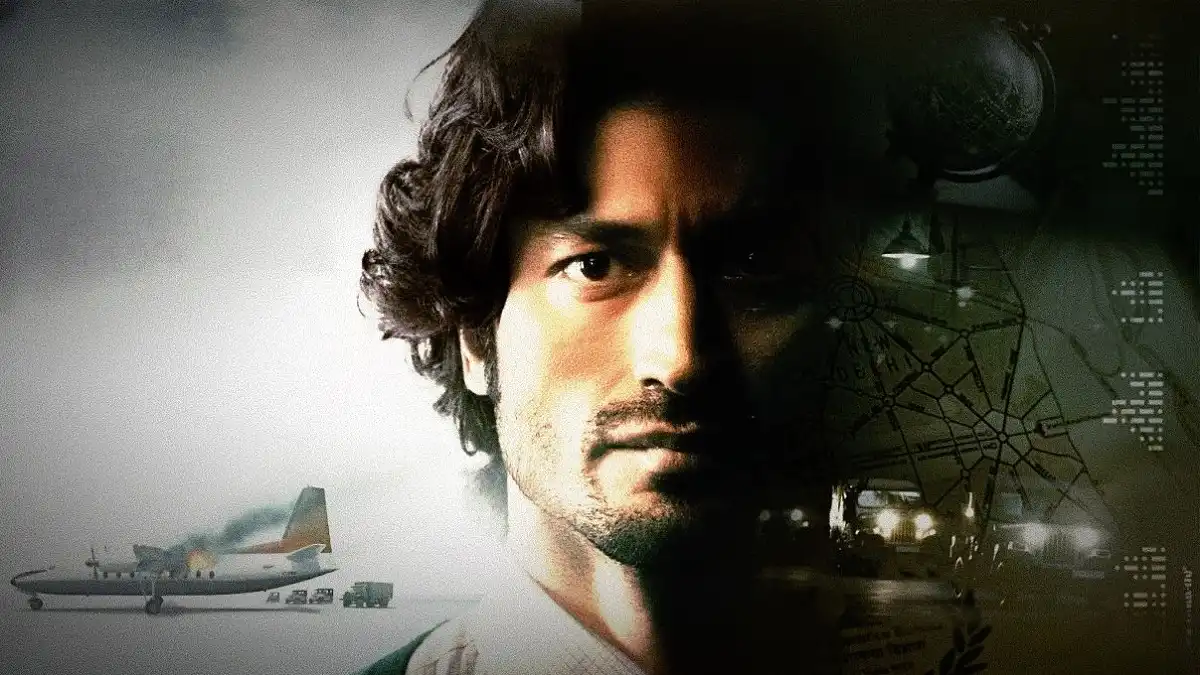IB71 Hijacks History To Hold Us Hostage With A Simplistic Spy Saga
This is #CriticalMargin where Ishita Sengupta gets contemplative over new Hindi films and shows. Here: Vidyut Jammwal's IB71
May 12, 2023

Detail from the poster for IB71
If there is any doubt about the way in which a majority of Hindi films today can be clubbed into two distinct categories of warring ideologies, then their opening credits furnish some clue. Sudhir Mishra’s Afwaah (‘Rumour’ in English) opened with the filmmaker thanking his fellow colleagues like Anubhav Sinha, Vishal Bhardwaj, Hansal Mehta. Earlier in the year Sinha’s Bheed, a blistering take on the migrant exodus in India during the early phase of COVID-19, featured similar names, with the director thanking Mishra instead of himself. At the outset, Sankalp Reddy’s IB71 expresses gratitude to Vipul Amrutlal Shah, the filmmaker who recently served as the creative director for the jingoistic The Kerala Story, and bankrolled it. The lines are drawn, the mould is ready.
Also Read: Dahaad Is A Portrait Of An India Divided By Religion, United By Prejudice
The enemy is obviously Pakistan. IB71 which marks flexible-man Vidyut Jamwal’s first excursion in production, is said to be based on a highly classified mission by India’s intelligence officers in 1970 wherein they negated an impending attack by the neighbouring country. Apparently the operation was not spoken for as long as five decades and if you look it up, this is the most you can unearth.
The year is 1970; tension between the two fragments of Pakistan is at its peak, as it is between the two neighbouring countries. Dev Jammwal (the actor retaining his surname), is an Intelligence Bureau officer who gets intel that Pakistan is planning an attack in 10 days. India is unprepared. To diffuse the impact, he plots a counter-move and informs his superior (essayed by who else but Anupam Kher) that if India can prove Pakistan has committed an act of terror then they can block their air routes and impede the attack. The film unfolds with the pointed purpose of portraying what allegedly took place.
Here’s the thing: I am not sure what did. Sankalp, who previously directed The Ghazi Attack (2017) is so caught up with the scenic beauty of Kashmir (the film goes there, yes), and catching light on Jamwal’s chiseled cheekbones that he relinquishes all effort in relaying to us what actually occurred. Here’s what I think happened: Dev plans to fake a flight hijacking in Pakistan. He uses a decommissioned flight called Ganga and 30 agents to fulfill the mission. Then he goes to Kashmir where a radicalist Qassim Qureshi (Vishal Jethwa) who pretends to be a police informer but is really not, is hatching a plan with his friend to hijack a flight to spread the message of ‘Free Kashmir’. Dev comes to know of this and plans on using him as the crutch for his mission. He — along with the aforementioned 30 agents, and some civilians — board the flight, which an unwitting Qassim hijacks. The flight takes a detour and lands in Lahore, much to the dismay of the Pakistan army.
Editor's Pick: Afwaah, The Kerala Story & A Tale Of Two Indias
This is not where the film ends but I ought to pause here to point out a few things. Keeping with the thriving legacy of jingoistic films, the Pakistan army is presented as simpletons who keep getting outwitted by Jamwal. Given that it is based on a real life incident I am willing to believe it is true but I am also prone to hope that at some point the film would replicate the tension, the nail-biting horror of when a host of Indians were on Pakistan soil and there was no one to tell what could happen next. Sankalp glides through these sections with one contrived moment after another. Honestly though the bar at present is so low that I was relieved that the people in Pakistan were not depicted as saying “janaab” every five seconds. Then there is the Qassim character who is introduced in the film solely to be made a mockery of. Jethwa essays him like he has come straight from the sets of Mardaani 2. He screams and shouts without possessing an ounce of brain. It is almost like he is indoctrinated which, at some level, becomes the film’s commentary on those wanting a free Kashmir.
More Reviews: Mrs Chatterjee Vs Norway Is A One-Note Screech Fest That Makes You Wish It Stayed Mum
This is an assumption, but what is certain is IB71’s intent of glorifying India and bartering it for everything else. Throughout the film Pakistan is treated as the lesser nation. The film opens with casually mentioning the beleaguered status of the country and by the time it concludes it reduces Bangladesh’s fight for liberation in 1971 to one line: “Pakistan wanted to break [the] North East but we ended up breaking their country into two.” Things were not this simplistic but a film that conjures most tension when Jamwal walks from one checkpost to another, is unlikely to offer more depth.
Share